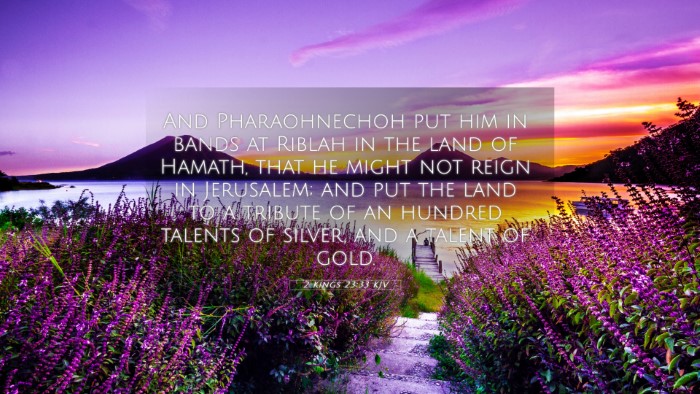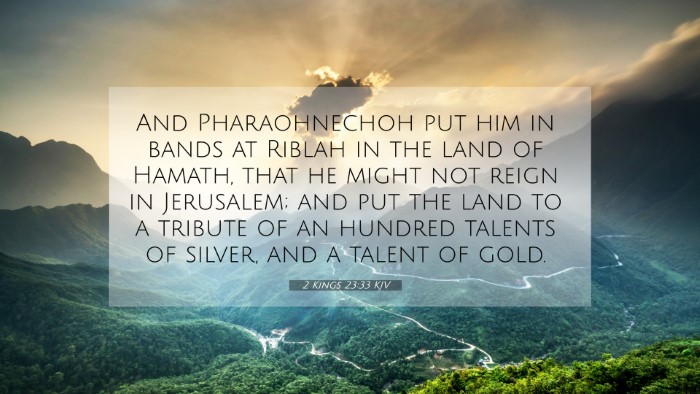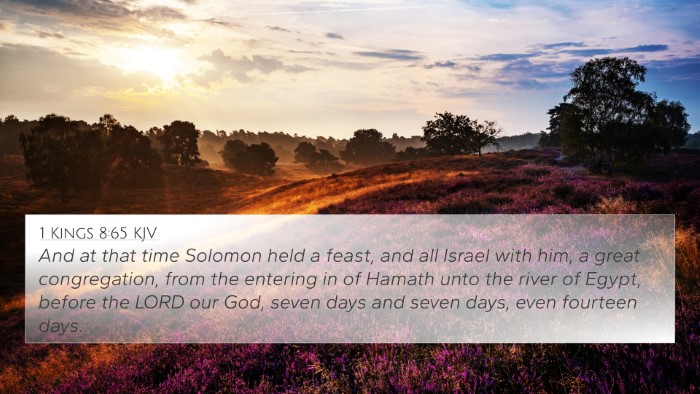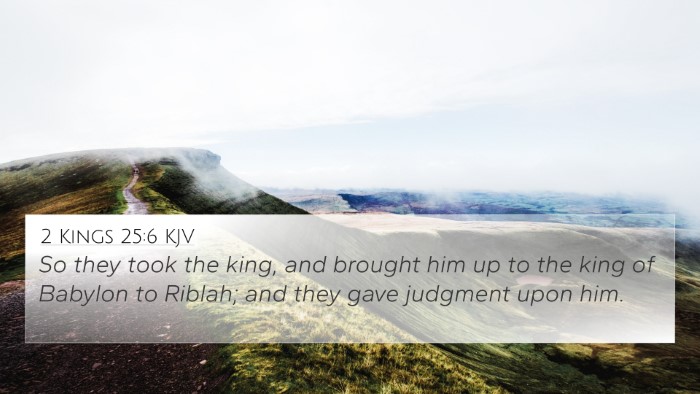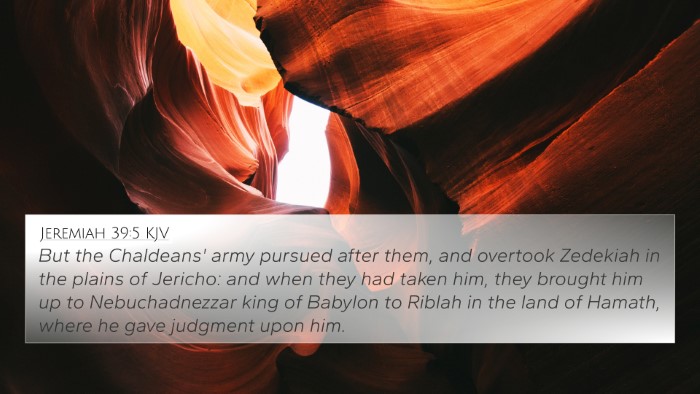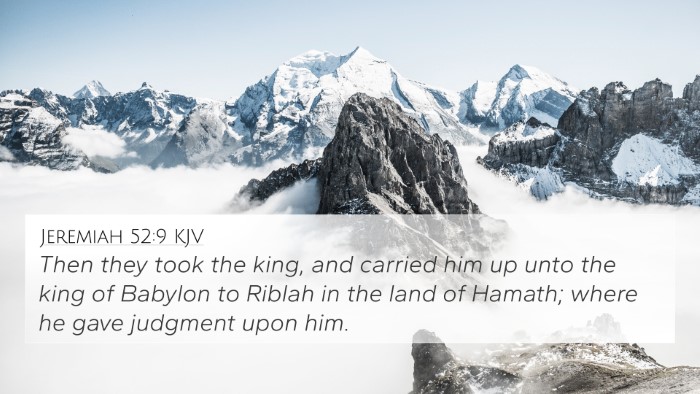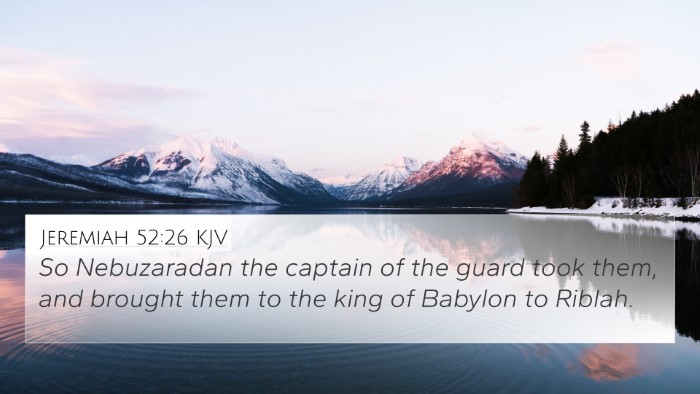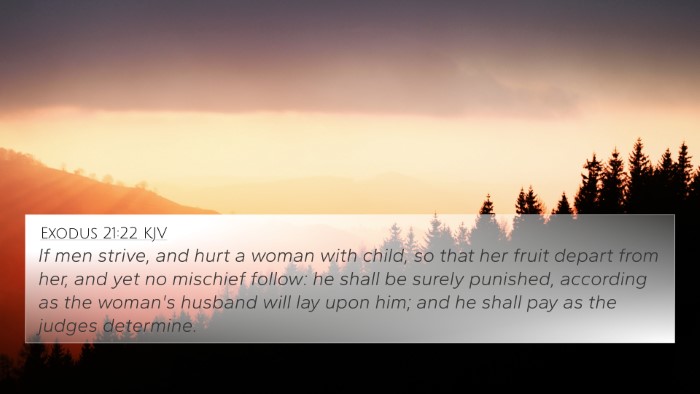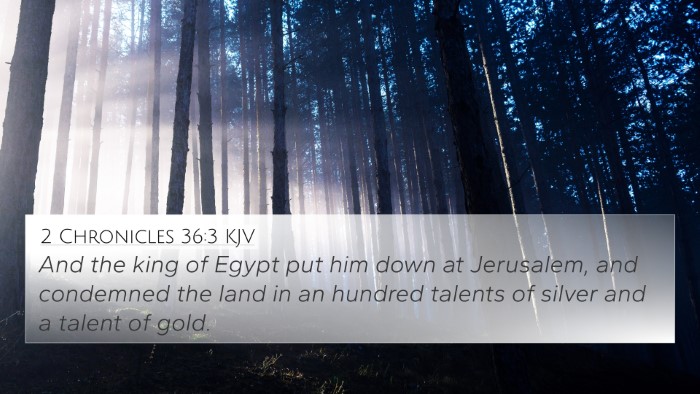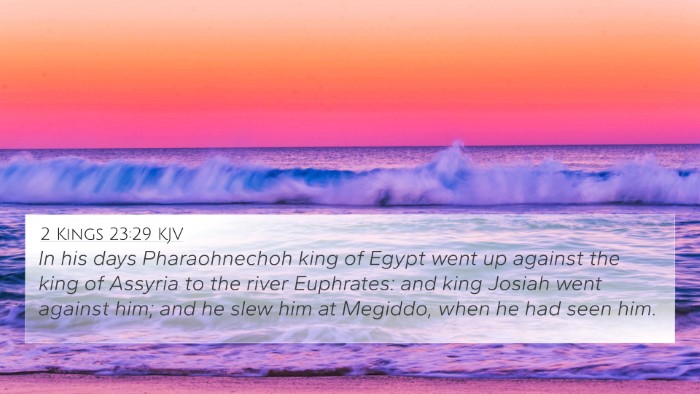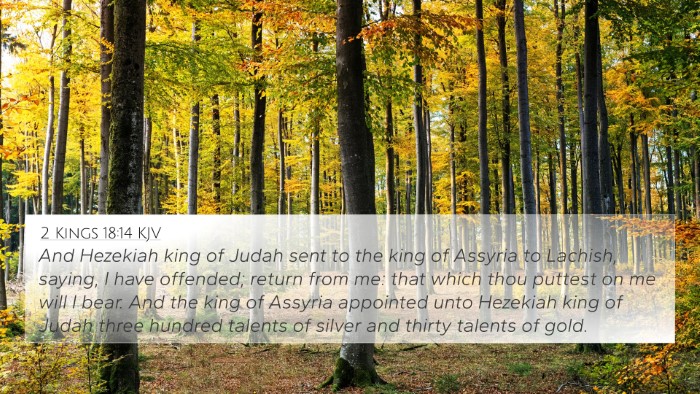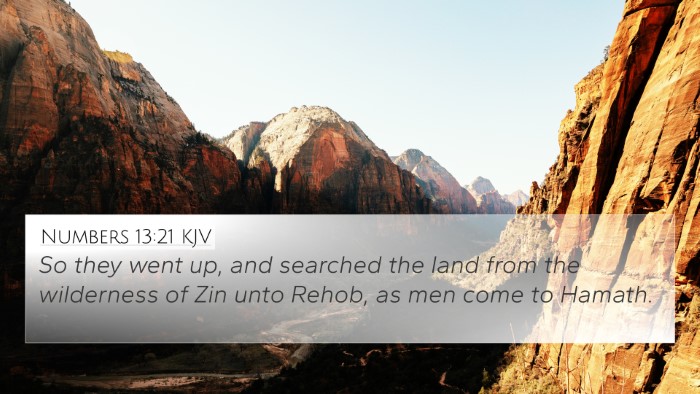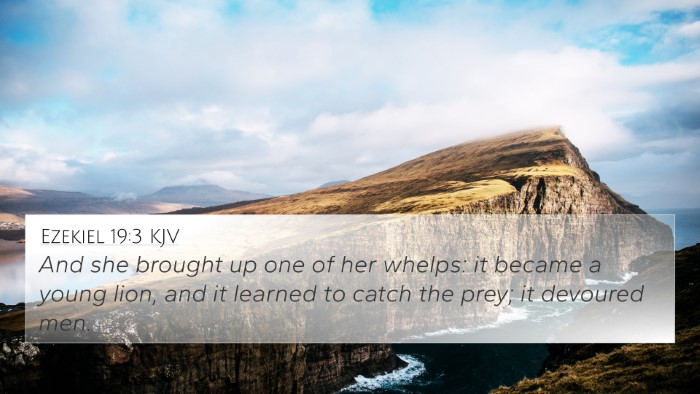Understanding 2 Kings 23:33
2 Kings 23:33 states:
"And Pharaoh-nechoh made Eliakim the son of Josiah king in the room of Josiah his father, and turned his name to Jehoiakim, and took Jehoahaz away: and he came to Egypt, and died there."
This verse marks a significant moment in the history of Judah, showing the political manipulation and the shifting powers during a tumultuous period. The commentaries from Matthew Henry, Albert Barnes, and Adam Clarke provide a deeper understanding of this event's implications and theological significance.
Contextual Background
The events described in this verse occur after the righteous reign of Josiah, who was noted for his reforms and attempts to restore the worship of Yahweh. Following Josiah's death, the political landscape of Judah became precarious.
Key Themes and Interpretations
-
Political Intrigue and Power Dynamics:
This verse illustrates the political alliance and control exhibited by Pharaoh-nechoh over Judah, indicating a shift from native leadership to foreign dominance. Pharaoh-nechoh's intervention demonstrates the lack of sovereignty that Israel experienced during this period.
-
Shift of Authority:
By changing Eliakim’s name to Jehoiakim, Pharaoh-nechoh was essentially asserting his authority and influence over Judah. This act symbolizes not just a change in leadership but also a change in allegiance.
-
Implications of Josiah's Reforms:
Josiah’s death and Jehoiakim's installation point to a regression in the spiritual reforms initiated previously. Jehoiakim’s reign was marked by disobedience to God, reflecting the consequences of rejecting divine guidance.
-
Theological Reflection:
As noted by Matthew Henry, this transition serves as a reminder of the effects of disobedience to God. It emphasizes the vulnerability of nations, particularly when they stray from the covenantal path outlined in the scripture.
Cross-References and Related Verses
To gain a comprehensive understanding of 2 Kings 23:33, it's beneficial to examine several related verses:
- 2 Kings 23:30: Describes Josiah's death, setting the stage for the events that follow.
- 2 Kings 24:1: Mentions the beginning of Jehoiakim's reign, highlighting the continuation of this narrative.
- Jeremiah 22:11: Prophesies during Jehoiakim's reign and reflects on the judgments against the kings of Judah.
- 2 Chronicles 36:4: Further illustrates Jehoiakim's elevation by Pharaoh, emphasizing the political manipulation present.
- Isaiah 36:2: Introduces the Assyrian threat which becomes significant during Jehoiakim's reign.
- Jeremiah 36:1-2: Provides insight into the prophecy given during Jehoiakim's reign, highlighting the consequences of disregarding God's word.
- Ezekiel 19:5-7: Uses the imagery of royal lineage to reference the kings of Judah, reflecting their fallibility and the consequences of corruption.
Reflection and Application
2 Kings 23:33 serves as a crucial reminder of the impacts of leadership and loyalty in both a spiritual and political context. The intersection of faith and politics is a recurring theme throughout the Bible, illustrating the consequences of aligning with earthly powers over divine principles.
Connecting Themes in Scripture
By examining the links between this verse and others, we can better comprehend the overarching narrative of Israel's history and God's enduring faithfulness.
The following themes are prevalent through the scriptures:
-
Divine Sovereignty vs. Human Authority:
This theme discusses the tension between God's rule and earthly powers, noted in passages such as Romans 13:1.
-
Judgment for Disobedience:
The plight of Jehoiakim and subsequent kings reflects God’s covenantal consequences, as recorded in Deuteronomy 28.
-
The Rise and Fall of Nations:
Isaiah 9:7 discusses the everlasting dominion given to the Messiah, contrasting with the temporal authority of kings who arise through political maneuvering, as seen in Jehoiakim's story.
Conclusion
2 Kings 23:33 is a poignant reflection on the spiritual decline following Josiah's reign and the manipulation of leadership by foreign powers. Through the lens of public domain commentaries, this passage reveals the importance of faithfulness to God's covenant amid shifting political landscapes.
By engaging in cross-referencing and connecting related Bible verses, readers can enrich their understanding of the intricate relationships within Scripture and the enduring themes that resonate across both the Old and New Testaments.

